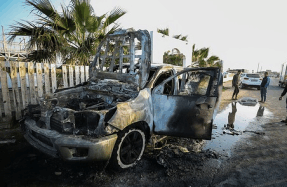Transcript: NPR's Full Interview With DNI Avril Haines

Director of National Intelligence Avril Haines, in her first interview in the role, speaks to NPR's Mary Louise Kelly about a new report on the killing of journalist Jamal Khashoggi, the state of morale in the intelligence community and her commitment to returning and resuming public testimony.
Mary Louise Kelly: Let's start with the news. You [Friday] have declassified a report on the killing of Jamal Khashoggi, the headline of which is I'll let you give it.
Director of National Intelligence Avril Haines: Sure. I mean, I think the report [does] not provide a lot of new information to people. Frankly, it's largely been reported. But we do assess that the operation to capture or kill Jamal Khashoggi was, in fact, approved by [Saudi Crown Prince] Mohammed bin Salman. And we provide our assessment and then we also identify other individuals that participated in the events.
Are you making a distinction with that verb approved as opposed to ordered?
Well, I think I'm just using the language, frankly, of the report itself — what it was that was assessed.
Does it feel like you just dropped a bomb into U.S.-Saudi relations?
I mean, obviously, it's going to be challenging. And, you know, it's among a number of things that are challenging that the president is managing right now. But I am hopeful and it is certainly I know the president's view to keep the channels of communication open and to try to work through these issues. But it's also a part of what we do in the intelligence community, I think is just try to provide what we see and make sure that it is as clear as possible and that we're providing that analysis and in sort of unvarnished way. And I know that's, you know, part of what it is that was hoped for from the Congress, I think, in passing this law and putting it forward.
Well, I was going to ask because Congress passed a law in 2019 saying you had to provide a declassified version of this report.
Yes.
What was the holdup?
I couldn't speak to what occurred over the last few years, obviously. You know, I think it it's —
Was this already written when you came in last month?
There was a classified report that had been provided to the Congress, and we looked at that report and we ultimately considered additional intelligence that had been done since that report had been delivered to the Congress. And we ultimately pulled out what we believed could be put forward while still being protective of sensitive sources and methods. And that's something that
You’re reading a preview, subscribe to read more.
Start your free 30 days





